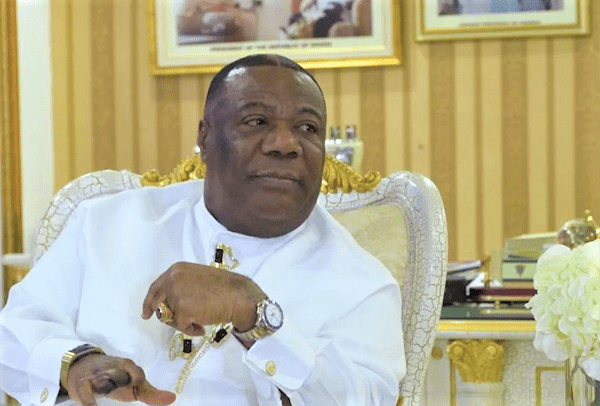Abandoned dam project poses danger to Ohawu residents
- Posted on
- Comment
An abandoned dam project in the Ohawu community in the North Ketu District of the Volta Region is posing danger to the lives of residents, including farmers in the area.
The construction of the irrigation dam was being funded with oil revenue to boost farming activities in the Ohawu community.
This was contained in a research finding by a policy think tank, African Centre for Energy Policy (ACEP).
“Work on the dam was halted when it was about 60 percent complete in 2016 following the development of huge cracks on the walls of the dam that culminate in the flooding of nearby farms and other economic and social activities such as transportation, education, and health in the area,” it stated.
Event
This came to light during a stakeholders’ engagement on an impact evaluation report on oil-funded projects, funded by Ghana Oil and Gas for Inclusive Growth (GOGIG).
The project, dubbed “Value For Money (VFM)” seeks to track oil revenue funded projects and find out if budgetary allocations were translating into actual execution of projects.
It was organized by ACEP, which has been undertaking the VFM project since 2014. The project is scheduled to end in 2019.
This year, there has been visitation work on three irrigation dam projects in Dawa, in the Ningo Prampram area in the Greater Accra Region, as well as Keyime and Ohawu in the Volta Region. The projects were earlier assessed in 2015 and 2016 by the VFM project.
But for the Ohawu irrigation project, ACEP discovered that all the others had been completed and having positive impacts on the beneficiary communities.
Contract
An officer with ACEP, Ms. Linda Ahunu, said the Ohawu dam was constructed in the late 70’s but later became malfunctional when its wall collapsed.
After several appeals by the community, the government through the petroleum revenue Annual Budget Funding Amount (ABFA) awarded a GH¢1,681,247.65 contract to Grumah Twins Company Limited for the reconstruction of the dam walls, an extension of the canal and a walkway along the ends of the dam in October 2014. It was expected to be completed in February 2016.
As of 2016, however, the project had incurred an estimated extra cost of about GH¢3,112,200 as a result of the pockets of seepage in the dam walls which were originally not detected at the time the contract was awarded.
Currently, she said the contractor has abandoned the project while additional funds made available in 2017 could not be traced.
Roads in the area, Ms. Hunu added, are immotorable. There also cases of pupils dropping out of school, teenage pregnancy, among others, because of the lack of incomes following low farming activities.
ACEP, therefore, called for an “immediate follow-up on the Ohawu irrigation dam project.”
It also called on the Auditor General to probe further into how much the ABFA was actually disbursed for rehabilitation of the project.
The head of programmes at ACEP, Mr. Alhassan Iddrisu, said: “every year when we do this VFM project we identify issues of abandoned projects or projects that money had been allocated for but cannot be traced.”
Concerns
The head chief (Dufia) of Ohawu, Torgbui Tuafli II, told the Daily Graphic that “many people have been displaced because of the broken dam.
The flooded farmlands are breeding grounds for mosquitoes, which is a leading cause of malaria in the area.”
The dam, Torgbui Tuafli said was very useful to the community because “the dam is our main source of drinking water and other domestic activities including farming. But now the leaking water from the dam is causing damage to us and we are worried.”











 (Selorm) |
(Selorm) |  (Nana Kwesi)
(Nana Kwesi)